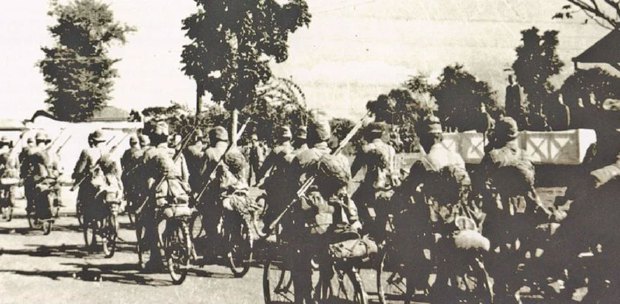ACCORDING to ancient Greek philosopher Socrates, imperialism is rooted in what his student, Plato, interprets in his phaedo as psykhe, the human soul.
Rising and ceasing with the body, it is an overpoweringly insistent entelechy whose constant demand for material sustenance is the ultimate cause for all armed conflict: "… because it's over the gaining of wealth that all wars take place, and we're compelled to gain wealth because of the body …"
For Malaysia, foreign imperialism is no stranger, having had more than 400 years of experience being alternately colonised by the Portuguese, the Dutch, the British, and the Japanese.
The Iraq War between 2003 and 2011 is another example of imperialism in all but name.
According to the Chilcot Report published in 2016: "[t]he judgements about the severity of the threat posed by Iraq's weapons of mass destruction —WMDs — were presented with a certainty that was not justified."
Rather, the report inadvertently made people realise that the underlying casus belli — an event or act used to justify a war — was the desire to control and exploit the Middle Eastern country's great number of oil wells.
The last time the world fell for a wild claim by a superpower, it resulted in a country's ruin and great number of deaths among its people.
Unfortunately, people severely incapacitated by war could never press claims or sue the invaders as compensation for the deaths and damages that are the indubitable costs of a military invasion.
People fall for external propaganda because they are not properly equipped with the necessary logical tools for critical thinking.
If some claim could not be verified as well as it should, then prudence should be exercised towards those who came up with such a claim in the first place.
That's because it is the preoccupation of warmongers and agents provocateurs alike to distort words, undermine institutions, obliterate legacies, sow discord, and provoke enmities out of greed and covetousness.
In the worldview of Islam, the selfish impulse is regarded as an internal enemy which must be restrained and controlled, rather than let loose, or worse, followed (Surah Yusuf (12): 53).
It can be argued from the vantage points of esteemed Muslim metaphysicians, such as al-Farabi, al-Ghazali, and ibn Rushd that any polity is a macrocosmic representation of its people, each of whose individual soul is frequently engaged in an internal battle between its higher rational aspect (al-nafs al-natiqah) and lower animal aspect (al-nafs al-hayawaniyyah).
An intelligent person with strong virtue of temperance possesses the strength to restrain and control the lower self, acts which God enjoins, hence are praiseworthy (Surah al-Nazi'at (79): 40-41).
Conversely, a weak or licentious person is one who frequently gives in to its covetousness. The former would constantly work for peace and order whereas the latter would always incite to war and conflict.
In the above conceptual scheme, a truly independent and sovereign nation comprises people whose collective temperance coincides with justice provided by their ruler.
However, justice is something the ruler could dispense only if he has already been inculcating in himself the virtue of courage, for a coward would be afraid of reprisals.
Yet, exercising virtues until there emerge justice requires wisdom, the crown jewel of virtues which god calls "an abundant good (khayran kathira)" and which He gives to whomever He Wills (Surah al-Baqarah (2): 269).
As Tan Sri Professor Syed Muhammad Naquib al-Attas explains, it is God-given knowledge of the right and proper places of things.
Its opposite is ignorance that leads to confusion and injustice.
Therefore, persistent education of the paramount virtues can ensure the nation's continuous protection from the bad consequences of following the whims of those who like to stir up conflicts.
The writer is senior research officer, Centre for Science and Environment Studies, Institute of Islamic Understanding Malaysia (IKIM)





